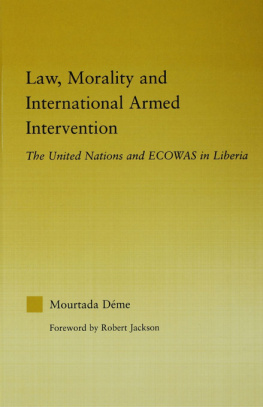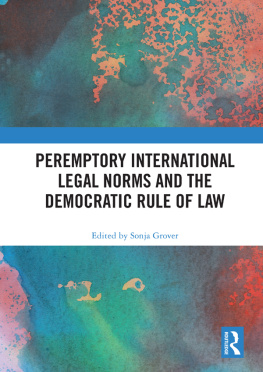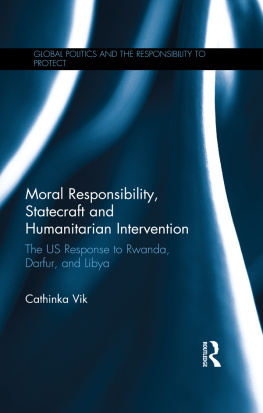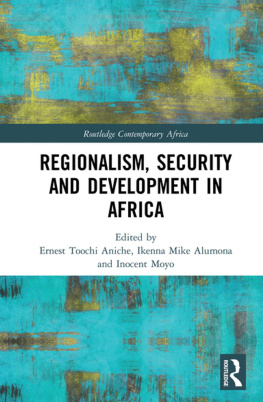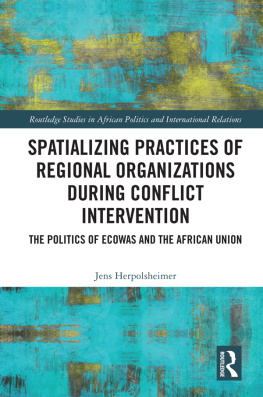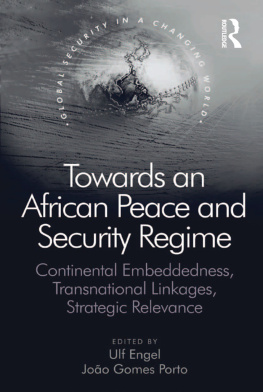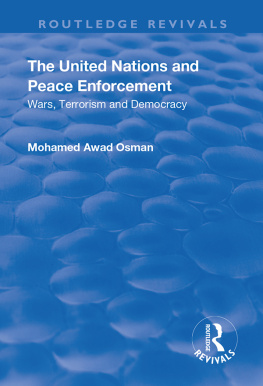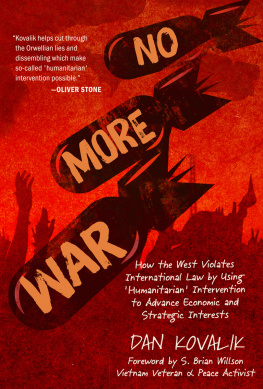African Studies
History, Politics, Economics, and Culture
Edited by
Molefi Asante
Temple University
A R OUTLEDGE S ERIES
A FRICAN S TUDIES
H ISTORY , P OLITICS , E CONOMICS, AND C ULTURE
M OLEFI A SANTE , General Editor
K WAME N KRUMAHS C ONTRIBUTION TO P AN -A FRICANISM
An Afrocentric Analysis
D. Zizwe Poe
N YANSAPO (T HE W ISDOM K NOT )
Toward an African Philosophy of Education
Kwadwo A. Okrah
T HE A THENS OF W EST A FRICA
A History of International Education at Fourah Bay College, Freetown, Sierra Leone
Daniel J. Paracka, Jr.
T HE Y ORB T RADITIONAL H EALERS OF N IGERIA
Mary Olufunmilayo Adekson
T HE C IVIL S OCIETY P ROBLEMATIQUE
Deconstructing Civility and Southern Nigerias Ethnic Radicalization
Adedayo Oluwakayode Adekson
M AAT, THE M ORAL I DEAL IN A NCIENT E GYPT
A Study in Classical African Ethics
Maulana Karenga
I GBO W OMEN AND E CONOMIC T RANSFORMATION IN S OUTHEASTERN N IGERIA , 1900-1960
Gloria Chuku
K WAME N KRUMAHS P OLITICO -C ULTURAL T HOUGHT AND P OLICIES
An African-Centered Paradigm for the Second Phase of the African Revolution
Kwame Botwe-Asamoah
N ON -T RADITIONAL O CCUPATIONS , E MPOWERMENT AND W OMEN
A Case of Togolese Women
Ayl La Adubra
C ONTENDING P OLITICAL P ARADIGMS IN A FRICA
Rationality and the Politics of Democratization in Kenya and Zambia
Shadrack Wanjala Nasongo
L AW , M ORALITY AND I NTERNATIONAL A RMED I NTERVENTION
The United Nations and ECOWAS in Liberia
Mourtada Dme
Published in 2005 by
Routledge
Taylor & Francis Group
270 Madison Avenue
New York, NY 10016
Published in Great Britain by
Routledge
Taylor & Francis Group
2 Park Square
Milton Park, Abingdon
Oxon OX14 4RN
2005 by Taylor & Francis Group, LLC
Routledge is an imprint of Taylor & Francis Group.
Printed in the United States of America on acid-free paper
10 9 8 7 6 5 4 3 2 1
International Standard Book Number-10: 0-415-97595-6 (Hardcover)
International Standard Book Number-13: 978-0-415-97595-7 (Hardcover)
Library of Congress Card Number 2005014503
No part of this book may be reprinted, reproduced, transmitted, or utilized in any form by any electronic, mechanical, or other means, now known or hereafter invented, including photocopying, microfilming, and recording, or in any information storage or retrieval system, without written permission from the publishers.
Trademark Notice: Product or corporate names may be trademarks or registered trademarks, and are used only for identification and explanation without intent to infringe.
Library of Congress Cataloging-In-Publication Data
Dme, Mourtada.
Law, morality and international armed intervention : the United Nations and ECOWAS in Liberia / by Mourtada Dme.
p. cm. -- (African studies)
Includes bibliographical references and index.
ISBN 0-415-97595-6
1. Liberia--History--Civil War, 1989---Participation, Foreign. 2. Liberia--History--Civil War, 1989---Participation, African. 3. United Nations--Liberia. 4. Economic Community of West African States. 5. Africa, West--Politics and government--1960- I. Title. II. African studies (Routledge (Firm))
DT636.5.D46 2005
341.23666209049--dc22
2005014503
Visit the Taylor & Francis Web site at
http://www.taylorandfrancis.com
and the Routledge Web site at
http://www.routledge-ny.com
To the memory of Mame Ndiack Dme.
For my parents.
Contents
| AAFC | Allied Armed Forces of the Community |
| ADF | Allied Democratic Forces |
| AFL | Armed Forces of Liberia |
| AJIL | American Journal of International Law |
| CEAO | Communaute Economique de lAfrique de lOuest |
| ECOMOG | ECOWAS Cease-fire Monitoring Group |
| ECOWAS | Economic Community of West African States |
| ICISS | International Commission on Intervention and State Sovereignty |
| ICJ | International Court of Justice |
| IFI | International Financial Institutions |
| IGNU | Interim Government of National Unity |
| IMF | International Monetary Fund |
| INFPL | Independent National Patriotic Front of Liberia |
| INN | International Negotiation Network |
| LNTG | Liberian National Transitional Government |
| LPC | Liberian Peace Council |
| LURD | Liberian United for Reconciliation and Democracy |
| MSC | Mediation and Security Council |
| NAM | Non-Aligned Movement |
| NATO | North Atlantic Treaty Organization |
| NGO | Non-Governmental Organization |
| NPRAG | National Patriotic Reconstruction Assembly Government |
| NPFL | National Patriotic Front of Liberia |
| OAU | Organization of African Unity |
| SMC | Standing Mediation Committee |
| TLA | Transitional Legislative Assembly |
| UEMOA | Union Economique et Monetaire Ouest Africaine |
| ULIMO | United Liberation Movement of Liberia for Democracy |
| UN | United Nations |
| UNOMIL | United Nations Observer Mission in Liberia |
Armed international interventions, justified on humanitarian grounds, have been among the most controversial episodes of world affairs since the end of the Cold War. Why should such interventions be controversial? Are not international humanitarian actions justifiable prima facie? It is because humanitarian grounds for such military actions are not explicitly sanctioned by the United Nations Charter, which privileges the doctrine of nonintervention, the inherent right of self-defense, and the Security Councils responsibility to preserve international peace and security. Various Security Council Resolutions that justify armed international intervention make reference to human rights, but only in the context of efforts to uphold international peace and security. Sovereign states and international organizations have done the same in exercising their right of self-defense. But none of that calls into question, much less does it undermine or change, the fundamental principle of state sovereignty, which has been and continues to be the cornerstone of international law. The constitutive fact that state sovereignty is the essential pillar upon which the architecture of international society is built explains why humanitarian intervention is the most controversial subject in international affairs if it seeks or has the effect of undermining that arrangement. Any contemplated departure and movement away from that fundamental principle is fraught with traps, snares and delusions, as many recent humanitarian interventions in various parts of the world bear witness to.
Mourtada Deme is undoubtedly correct in interpreting UN norms and practice as, on balance, realistic and prudent rather than idealistic and progressive. The fathers of the United Nations who met in San Francisco in 1945, immediately following the most calamitous war in human history which involved unprecedented humanitarian disasters, were determined to endorse the fundamental principles of equal state sovereignty, territorial integrity and non-intervention as the foundation of the new world organization. That was because they were responding to the many acts of armed intervention by Fascist Italy in Ethiopia, by Nazi Germany across Europe, and by Imperialist Japan in Asia and the Pacific which precipitated that war and provoked the allied war effort. All those interventions involved massive human rights violations and some of them acts of forced labor and genocidal murder on an unimaginable scale.

